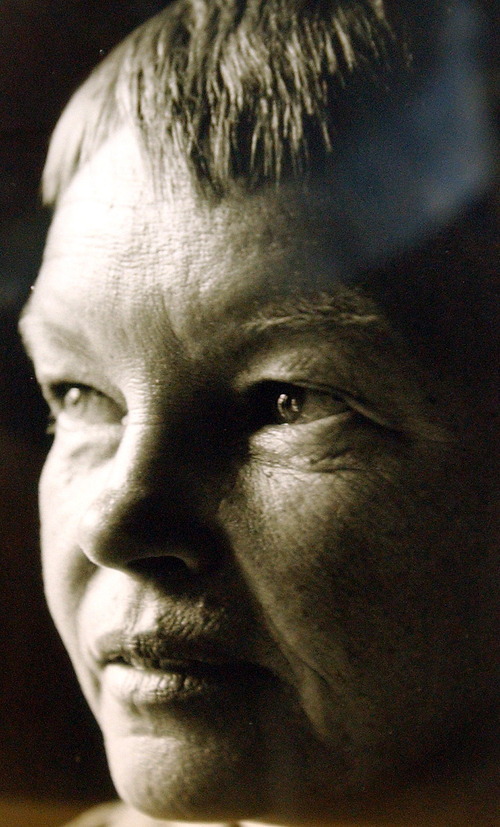This is an archived article that was published on sltrib.com in 2013, and information in the article may be outdated. It is provided only for personal research purposes and may not be reprinted.
Poet May Swenson created her greatest work outside her home state of Utah, but she was infused with a spirit of exploration and joy indicative of the American West, said scholar Paul Crumbley.
"She's a happy writer. She's sort of healthy, does not bemoan the emptiness of life," said the Utah State University English professor. "I don't think she lost a sense of identity as a Western writer."
A Logan native who became one of the most influential poets of the 20th century, Swenson would have been 100 this year.
"A Prairie Home Companion" host Garrison Keillor and former Utah poet laureate Katharine Coles will honor Swenson at a sold-out event Thursday night featuring poetry readings and discussions about her work.
Born the eldest of 10 children in a Mormon household, Swenson grew up speaking English as a second language after Swedish and later earned a bachelor's degree from USU, according to a biography published by the Academy of American Poets at poets.org. A reporter in Utah for a year before she moved to New York City in 1935, she worked at various times as an editor, translator, secretary and stenographer while writing poetry. In the 1960s she decided to focus on her own writing and served as a poet-in-residence at several colleges in the United States and Canada.
Her writing was wide-ranging, encompassing nature, philosophy and science — one poem about DNA wound down the page in the shape of a double-helix. Her work, considered adventurous and at times erotic, has been compared to E.E. Cummings and Gertrude Stein. A lesbian herself, Swenson composed love poems that transcended orientation and are still popular Valentine's Day gifts, Crumbley said.
"A lot appeal to both gay and straight readers ... she didn't want to be pigeonholed," Crumbley said. "She wrote a number of poems about how destructive labels can be."
She believed that any aspect of the human experience could become poetry and didn't begin her work with a certain topic or idea, but rather let the words "flow through her," he said.
"She ran a lot of risks," he said. "She thought of herself as a poet who found poems."
She believed in the power of spontaneity over training in poetry, and shortly before her death, wrote: "The best poetry has its roots in the subconscious to a great degree. Youth, naivety, reliance on instinct more than learning and method, a sense of freedom and play, even trust in randomness, is necessary to the making of a poem."
Swenson died in 1989 and was buried in Logan, where USU hosts an annual poetry competition in her name. Keillor has served as a judge, and will read a selection of Swenson's works. Coles is expected to discuss her life and the influence of her work at 7 p.m. Thursday at Morgan Theatre in the Chase Fine Arts Center.
Twitter: @lwhitehurst



